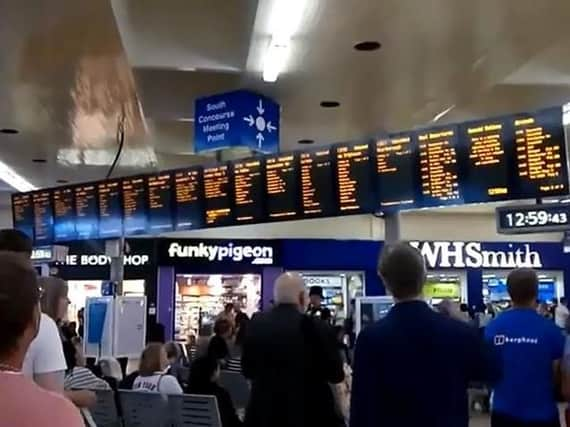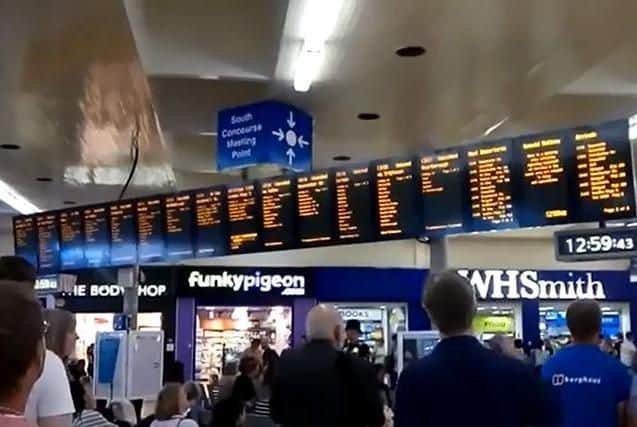Protests at Leeds railway station over 3.5 percent ticket increases


Members of the Rail, Maritime and Transport union (RMT) will stage demonstrations outside stations in cities including London, Birmingham, Cardiff, Leeds and Edinburgh.
Advertisement
Hide AdAdvertisement
Hide AdThe union claims that rail passengers are paying “through the nose” for overcrowded services. Research published this week found that the cost of rail travel has increased at more than twice the speed of wages since 2008.


The TUC said fares have risen by 42 per cent over the past 10 years, while nominal weekly earnings have only grown by 18 per cent.
Many long-distance commuters will see the annual cost of getting to work increase by more than £150 next year.
The Department for Transport (DfT) uses the July Retail Prices Index (RPI) measure of inflation to determine the cap on the annual increase in regulated train fares, which comes into force every January.
Advertisement
Hide AdAdvertisement
Hide AdEconomists predict this will be around 3.5 per cent, but the exact figure will be released by the Office for National Statistics at 9.30am today.
Regulated fares include season tickets on most commuter routes, some off-peak return tickets on long-distance journeys and Anytime tickets around major cities.
The Scottish Government caps regulated off-peak fare increases at RPI minus one percentage point.
Advertisement
Hide AdAdvertisement
Hide AdCampaigners argue it is unfair on passengers to use the RPI figure instead of the lower CPI measure of inflation.
RMT general secretary Mick Cash said: “Even if fares were pegged at the more modest CPI, these latest increases would still massively outstrip wages leaving the British passenger to pay through the nose to travel on rammed out and unreliable services.”
TUC general secretary Frances O’Grady said: “Our railways need urgent investment, but private rail companies are being allowed to prioritise shareholder profits over improving services.”
A DfT spokesman said: “Any fare increase is unwelcome, but it is not fair to ask people who do not use trains to pay more for those who do.
Advertisement
Hide AdAdvertisement
Hide AdTaxpayers already subsidise the network by more than £4bn a year – meaning that 38 per cent of our transport budget is spent on the two per cent of journeys that the railway accounts for.”